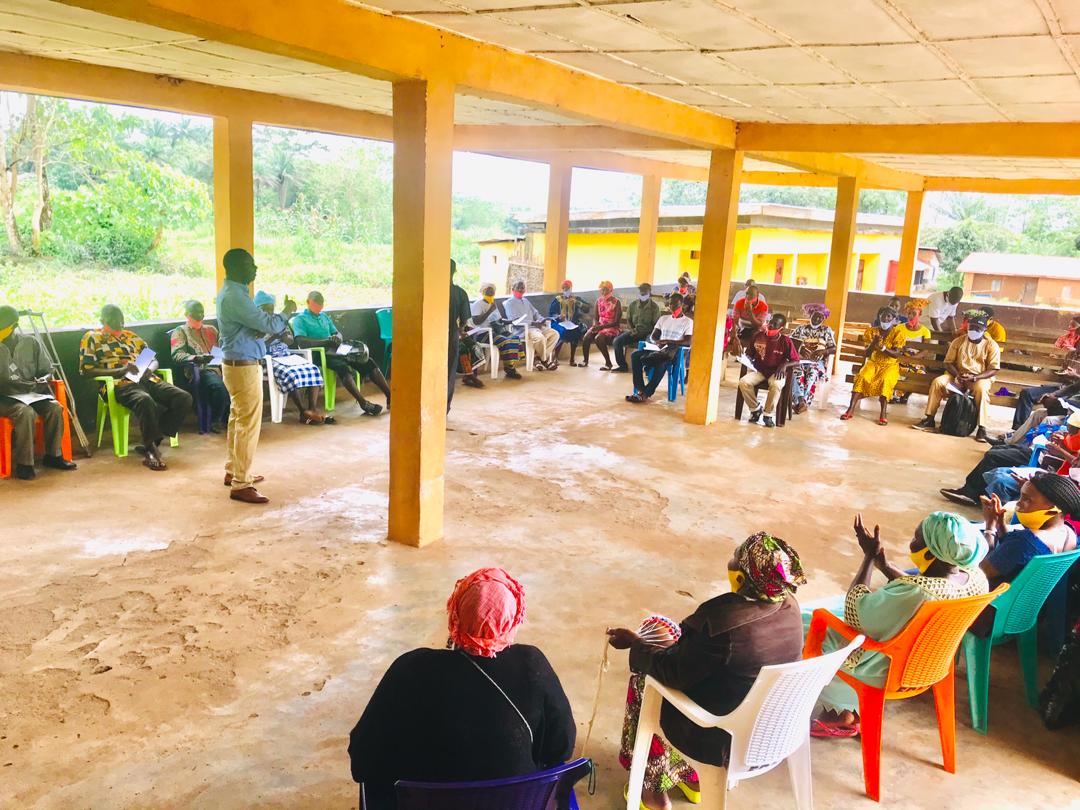How can government policies invite local community voices to lead and support local priorities and agency in international peace and development? On October 14th, CFP president Libby Hoffman and Fambul Tok director John Caulker will share their experience building a national policy framework in Sierra Leone that has done just that. CFP is co-hosting a post-United National General Assembly event with the International Peace Institute, the Institute for State Effectiveness, and the Governments of Sierra Leone and Afghanistan, entitled Governance that Centers Communities. This virtual global policy forum will highlight Sierra Leone’s Wan Fambul National Framework for Inclusive Governance and Local Development as well as the Citizen’s Charter in Afghanistan, two distinct cases of government policies that work to explicitly invite community voice, priorities and agency to development and peace.
This event is free and open to the public. For more information and to register click here.
Other speakers will include, H.E. Min. Alghali, Sierra Leone’s Minister of State for the Office of the Vice President, H.E. Ms. Adela Raz, Permanent Representative of the Islamic Republic of Afghanistan to the UN, Ms. Clare Lockhart, Director, Institute for State Effectiveness, and Mr. Rasoul Rasouli, CDD Operations and Development Expert, Former Director General, Citizens’ Charter, Afghanistan. Moderator; Ms. Jimena Leiva Roesch, IPI Senior Fellow and Head of Peace and Sustainable Development Program.
At CFP, we have been learning that it is not enough to fund and support local peacebuilding and development initiatives in isolation because communities are part of a larger whole. They exist in the context of governance systems, funding practices and civil society initiatives that support and invite their agency or work against it. With a long history of top down, hierarchical approaches to peace and development, our global systems, governments, international organizations, funders and civil society organizations need to reorient to make space for and invite community voice (a collective organized voice that speaks as one but honors the many voices in community) and agency rather than see communities as passive recipients. Governments are well positioned to coordinate resources and support alignment between all stakeholders and can do so while making efforts to create space for community voice and initiative. Afghanistan and Sierra Leone offer lived examples of how government efforts to shift their orientation to a model of partnership with communities have succeeded and faced challenges that we hope will be insightful for others also interested in forging this path.
Having witnessed the positive contributions community members across Sierra Leone have made to their communities and nation through the work of our partner, Sierra Leonean NGO Fambul Tok, we are convinced that there is tremendous latent capacity within communities that if invited can lead to thriving in even the most difficult circumstances. Through the Citizen’s Charter program, a partnership between the Afghan State and communities throughout Afghanistan, we have learned about an initiative started by civil society that over time was adopted by the government that scaled up a program dedicated to ensuring people in communities at the most local level have voice in development.
This event is part of Catalyst for Peace’s commitment to building peace from the inside out, and specifically to exploring what funders, government and civil society organizations can do to support thriving community ownership and leadership in peace and development.


